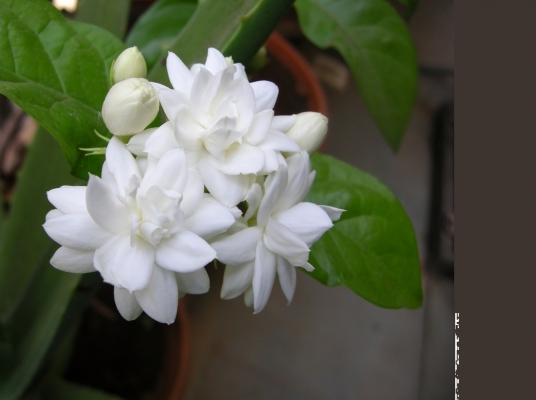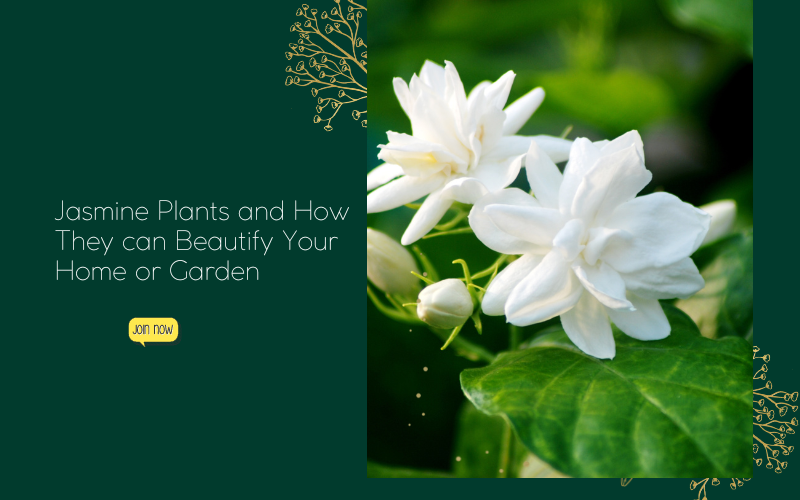Jasmine Fertilizer: The Ultimate Guide To Growing Lush Blooming Plants
Jasmine is a beautiful and fragrant plant that can add a touch of elegance to any garden. However, in order to thrive, jasmine plants need to be fertilized regularly. The right fertilizer will help your jasmine plant grow lush and produce plenty of blooms.
In this blog post, we will discuss the importance of fertilizing jasmine plants, the different types of fertilizer that can be used, and how to fertilize your jasmine plant correctly. We will also provide some tips for troubleshooting common fertilizer problems.
Why Fertilize Jasmine Plants?
Jasmine plants are heavy feeders, which means that they need a lot of nutrients in order to grow and thrive. If your jasmine plant is not getting enough fertilizer, it will start to show signs of deficiency, such as yellow leaves, stunted growth, and fewer blooms.
Fertilizer provides jasmine plants with the nutrients they need to produce healthy foliage and flowers. It also helps to improve the overall health and vigor of the plant, making it more resistant to pests and diseases.
Types of Fertilizer for Jasmine Plants
There are two main types of fertilizer that can be used for jasmine plants: organic fertilizer and inorganic fertilizer.
- Organic fertilizer is made from natural materials, such as compost, manure, and bone meal. It is a slow-release fertilizer, which means that it releases nutrients into the soil over time. Organic fertilizer is a good choice for jasmine plants because it helps to improve the overall health of the soil.
- Inorganic fertilizer is made from synthetic materials, such as ammonium nitrate and potassium sulfate. It is a fast-release fertilizer, which means that it releases nutrients into the soil quickly. Inorganic fertilizer is a good choice for jasmine plants that need a quick boost of nutrients.
How to Fertilize Jasmine Plants
The best time to fertilize jasmine plants is in the spring and summer, when they are actively growing. You can fertilize your jasmine plant once a month during the spring and summer months.
When fertilizing jasmine plants, it is important to follow the directions on the fertilizer label. Over-fertilizing can be just as harmful as under-fertilizing, so it is important to be careful.
Troubleshooting Fertilizer Problems
If you are having problems with your jasmine plant, it may be due to a fertilizer problem. Here are some common fertilizer problems and how to troubleshoot them:
- Yellow leaves: If your jasmine plant's leaves are turning yellow, it may be a sign of nitrogen deficiency. To correct this problem, fertilize your plant with a fertilizer that is high in nitrogen.
- Stunted growth: If your jasmine plant is not growing as quickly as it should, it may be a sign of phosphorus deficiency. To correct this problem, fertilize your plant with a fertilizer that is high in phosphorus.
- Fewer blooms: If your jasmine plant is not blooming as much as it should, it may be a sign of potassium deficiency. To correct this problem, fertilize your plant with a fertilizer that is high in potassium.
Conclusion
Fertilizing jasmine plants is an important part of keeping them healthy and thriving. By following the tips in this blog post, you can ensure that your jasmine plant gets the nutrients it needs to produce lush foliage and beautiful blooms.
I've found some great information about jasmine fertilizer on Home Gardening. They have a wide variety of fertilizers specifically designed for jasmine plants, and they also have a blog with helpful articles on how to fertilize your jasmine plant correctly.
FAQ of jasmine fertilizer
Frequently Asked Questions about Jasmine Fertilizer
- What kind of fertilizer do you use on jasmine?
Jasmine plants prefer a balanced fertilizer with a 10-10-10 or 5-10-10 NPK ratio. You can use a liquid fertilizer or a slow-release fertilizer. Be sure to follow the directions on the fertilizer label.
- How often should I fertilize my jasmine plant?
You should fertilize your jasmine plant once a month during the spring and summer months. In the fall and winter, you can fertilize less often, or not at all.
- What are the signs of a jasmine plant that needs fertilizer?
A jasmine plant that needs fertilizer may have pale leaves, slow growth, or few flowers. If you notice any of these signs, it's a good idea to fertilize your plant.
- Can I use too much fertilizer on my jasmine plant?
Yes, it is possible to use too much fertilizer on your jasmine plant. Too much fertilizer can burn the roots of the plant and cause it to die. It's important to follow the directions on the fertilizer label carefully.
- What are some organic fertilizers that I can use on my jasmine plant?
There are a number of organic fertilizers that you can use on your jasmine plant. Some popular options include:
Fish emulsion: This is a liquid fertilizer that is high in nitrogen and phosphorus.
Kelp meal: This is a slow-release fertilizer that is high in potassium.
Compost: This is a natural fertilizer that is high in nutrients.
How do I apply fertilizer to my jasmine plant?
You can apply fertilizer to your jasmine plant by following these steps:
- Water the plant thoroughly before fertilizing.
- Sprinkle the fertilizer around the base of the plant.
- Water the plant again after fertilizing.
Image of jasmine fertilizer
- Jasmine plant with fertilizer granules scattered around the base.

- A bottle of liquid jasmine fertilizer.

- A bag of granular jasmine fertilizer.

- A hand holding a trowel, about to apply jasmine fertilizer to a plant.

- A close-up of jasmine fertilizer granules.

- A jasmine plant with new growth, indicating that it is responding well to fertilizer.

- A healthy jasmine plant in full bloom.

- A sign in a garden center that says "Jasmine Fertilizer."

- A website with a page about jasmine fertilizer.

- A blog post about the best jasmine fertilizer to use.

Post a Comment for "Jasmine Fertilizer: The Ultimate Guide To Growing Lush Blooming Plants"